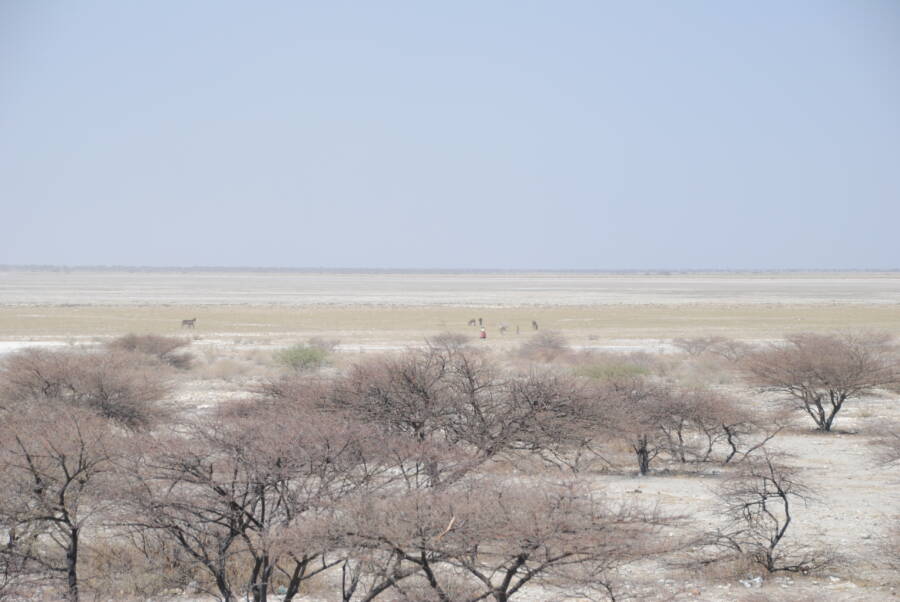Researchers Traced The Ancestral Homeland Of Modern Humans To Botswana

Wikimedia CommonsThis salty basin in northern Botswana was once a thriving oasis — and may have been our ancestral homeland.
Scientists have long believed that Homo sapiens originated in Africa, but where exactly in Africa was still up for debate. In 2019, however, researchers made a historical discovery that narrowed the point of origin to one place: Botswana.
In the study, researchers used DNA testing and climate modeling to successfully trace the lineage of all modern humans to a region in northern Botswana.
Researchers used the DNA samples of 1,217 people in southern Africa. They looked at mitochondrial DNA, which is passed exclusively from mother to child, and analyzed those samples in combination with historical shifts in Africa’s climate and geography.
They were able to zero in on the Makgadikgadi Basin, which today is a virtually uninhabitable salt flat, but 200,000 years ago — when the first humans came to be — was a lush oasis amid an arid continent. The area was home to an isolated human population for at least 70,000 years, until other parts of Africa became able to sustain life and humans migrated outward.
“It’s an extremely large area, it would have been very wet, it would have been very lush,” said Prof. Vanessa Hayes, a geneticist and senior author on the study at the Garvan Institute of Medical Research in Sydney. “And it would have actually provided a suitable habitat for modern humans and wildlife to have lived.”
But not everyone in the scientific community is convinced. “Drawing sweeping conclusions about places of origin from analyses of this tiny part of the modern genome is deeply problematic and outdated,” said Rebecca Ackermann, an archaeologist at the University of Cape Town. Plus, other studies have indicated that humans evolved 300,000 or more years ago in other parts of Africa.
The 2019 study is but one piece of the giant, seemingly never-ending puzzle of the origins of our species.





